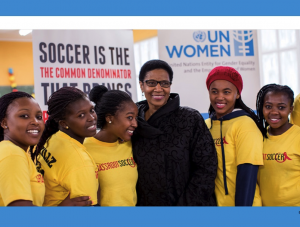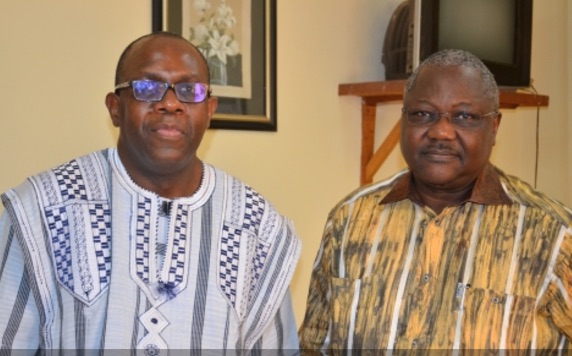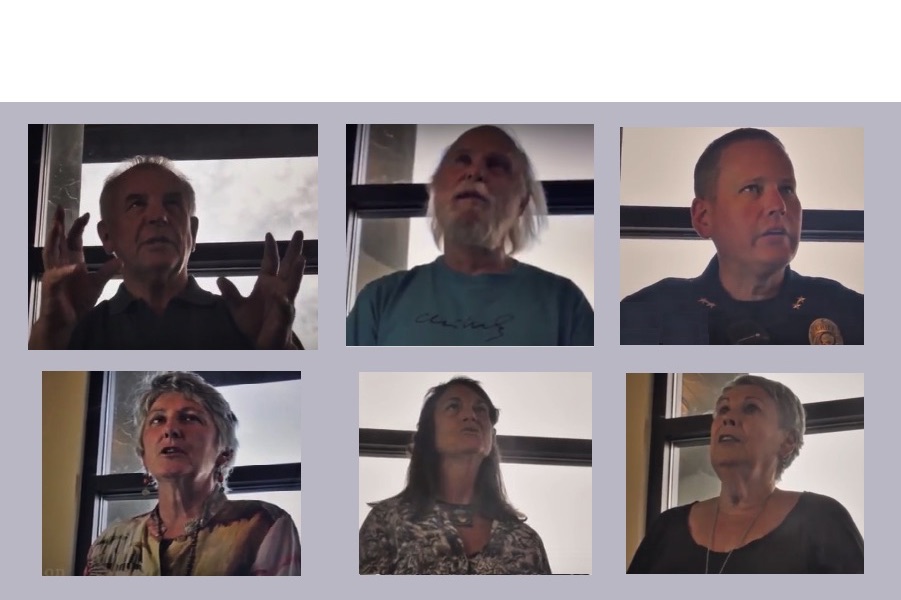Since women’s equality is an essential part of the culture of peace, we must appreciate the great mobilization around Women’s Day, March 8, and the annual meeting of the United Nations Commission on the Status of Women.
On International Women’s Day, women around the world celebrated by marching in more than 50 countries. The photo essay republished by CPNN includes images from Ukraine, Bangladesh, Australia, Nigeria, Georgia, Palestine, Spain and USA. Especially impressive was the mobilization in the United States where millions of women took part in a “Day without a woman.” It was organized by means of social media in the same way as the women’s demonstrations January 21 in which over 2 million protested the policies of the newly inaugurated President Trump. We have not found any way to measure how many women participated by staying away from work or to what extent their refusal to shop led to decreased sales on March 8, but we provide links to many descriptions of the day in the mass media.
Women activists were featured by various international NGOs in March. The Coalition for the International Criminal Court presented women leading the fight for global justice from Colombia, Mexico, Philippines, Lebanon, Ukraine and Mali. Amnesty International celebrated the US mobilization of “Day without a woman” by publishing “eight women who are battling on the frontline to claim their rights, refusing to wait in the face of injustice.” They came from South Africa, Canada, El Salvador, China, Afghanistan, Norway, Saudi Arabia and Iran. And Nonviolent Peaceforce presented a tribute to Joan Bernstein: “Joan was the heart and soul of the U.S. and Canadian chapters of NP for many years. She helped organize the founding conference for NP, and later the annual conference of North American chapters. She provided us with vision, inspiration, resources, skills — and the endless belief that we could rise to any challenge.”
Women activists from around the world gathered at the United Nations for this year’s meetings of the Commission on the Status of Women (CSW). The meetings featured :
– The priority theme: Women’s economic empowerment in the changing world of work
– Review theme: Challenges and achievements in the implementation of the Millennium Development Goals for women and girls (agreed conclusions of the fifty-eighth session)
– Emerging issue/Focus area:The empowerment of indigenous women
They received a report from the UN Secretary-General’s High-Level Panel (HLP) on Women’s Economic Empowerment which identified seven main drivers of transformation:
1) tackling adverse norms and promoting positive role models;
2) ensuring legal protections and reforming discriminatory laws and regulations;
3) recognizing, reducing and redistributing unpaid work and care;
4) building digital, financial and property assets;
5) changing corporate culture and practice,
6) improving public sector practices in employment and procurement; and
7) strengthening visibility, collective voice and representation.
Many of these points were addressed in the opening statement of the CSW by the Executive Director of UN Women, Phumzile Mlambo-Ngcuka.
In one of the many side events of the CSW, the International Institute on Peace Education and the Pasos Peace Museum urged women to use important existing UN resolutions as tools for achieving equality:
– UNSCR 1325 on Women, Peace and Security
– the Convention on the Elimination of All Forms of Racial Discrimination
– the Declaration on the Rights of Indigenous Peoples
Several speakers and reports pointed to Iceland as an example of a country where women’s equality is being achieved. To mark International Women’s Day, the government of Iceland announced that they will become the first country in the world to require companies to prove they pay all employees the same, regardless of gender, ethnicity, sexuality and nationality.
We conclude with the words of Phumzile Mlambo-Ngcuka, in her speech to the CSW: “The much-needed positive developments are not happening fast enough. . . . let us agree to constructive impatience.”
|
WOMEN’S EQUALITY |
TOLERANCE AND SOLIDARITY |
DEMOCRATIC PARTICIPATION |
SUSTAINABLE DEVELOPMENT France: The farmers who bought an old Lidl supermarket |
|
FREE FLOW OF INFORMATION |
Amnesty: 8 women show us why International Women’s Day is the day to declare: We won’t wait for our rights! |
DISARMAMENT AND SECURITY |
EDUCATION FOR PEACE |






